The Rise of the Machines
Video playlist
Press
Insight
The rise of the machines
Whether you call it the third or the fourth industrial revolution, we are entering an era of unprecedented economic, technological and social change. But what are the forces driving this change and will humanity benefit or suffer as a result?
Read our full Insight on The rise of the machines by Maura Wyler, Head of Communication.
The rise of the machines
Whether you call it the third or the fourth industrial revolution, we are entering an era of unprecedented economic, technological and social change. But what are the forces driving this change and will humanity benefit or suffer as a result?
Read our full Insight on The rise of the machines by Maura Wyler, Head of Communication.
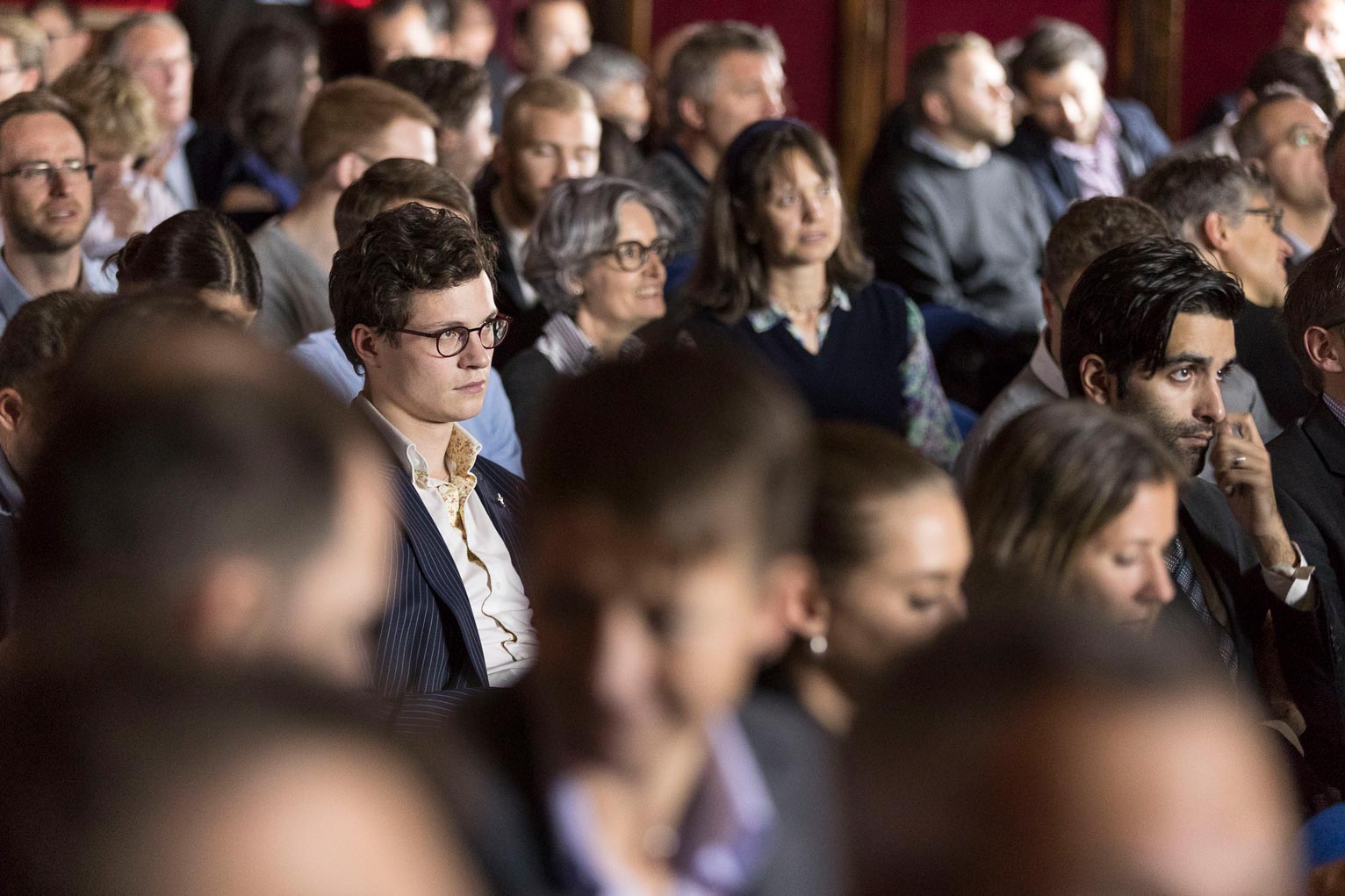
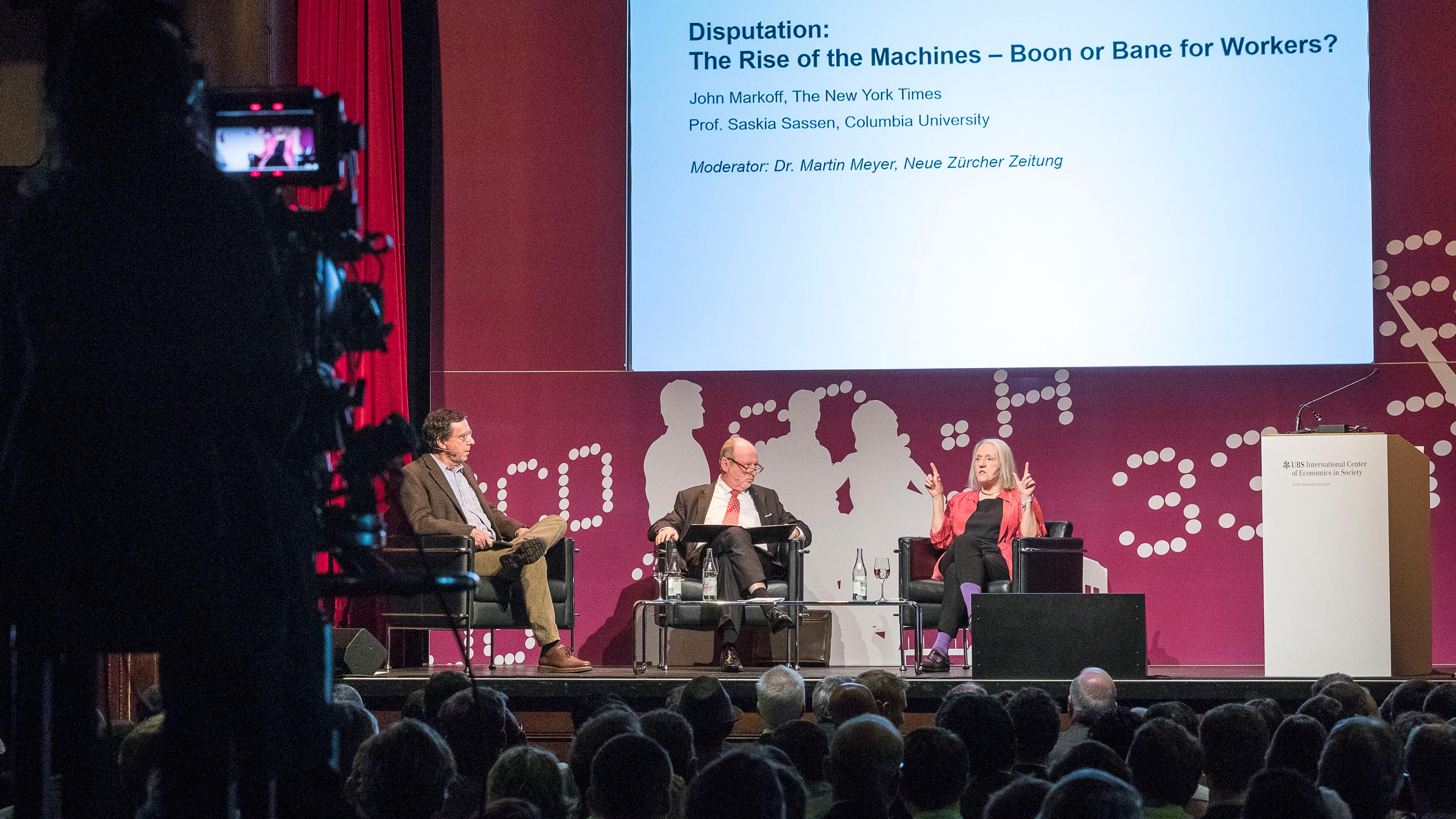
Intro
An omnipresent internet, industrial robots, self-driving cars, augmented reality glasses, big data, artificial intelligence; chances are that we are currently undergoing the most fundamental wave of technological change mankind has witnessed – ever.
The Forum featured economists, entrepreneurs, philosophers, and technology experts from around the world who discussed whether, and if so how, the current wave of technological change will revolutionize the way our economy operates and how human beings participate in it.
The panel sessions focused on the following topics:
Revolution or Evolution?
Policies for the Machine Age
Boon or Bane for Workers?
Panel speakers included Prof. Nick Bostrom (Oxford University, founding Director of the Future of Humanity Institute), Dr. Alessandro Curioni (IBM Fellow, Vice President Europe and Director, IBM Research - Zurich), Prof. Jeremy Greenwood (University of Pennsylvania), John Martin (Consultant; former OECD Director for Employment, Labour and Social Affairs), Prof. Joel Mokyr (Northwestern University), Prof. Saskia Sassen (Columbia University), and Prof. Roland Siegwart (Robotics Lab, ETH Zurich).
The event started with a keynote lecture by Jeremy Rifkin and concluded with the Zurich Lecture of Economics in Society delivered by Prof. David Autor (MIT).
An omnipresent internet, industrial robots, self-driving cars, augmented reality glasses, big data, artificial intelligence; chances are that we are currently undergoing the most fundamental wave of technological change mankind has witnessed – ever.
The Forum featured economists, entrepreneurs, philosophers, and technology experts from around the world who discussed whether, and if so how, the current wave of technological change will revolutionize the way our economy operates and how human beings participate in it.
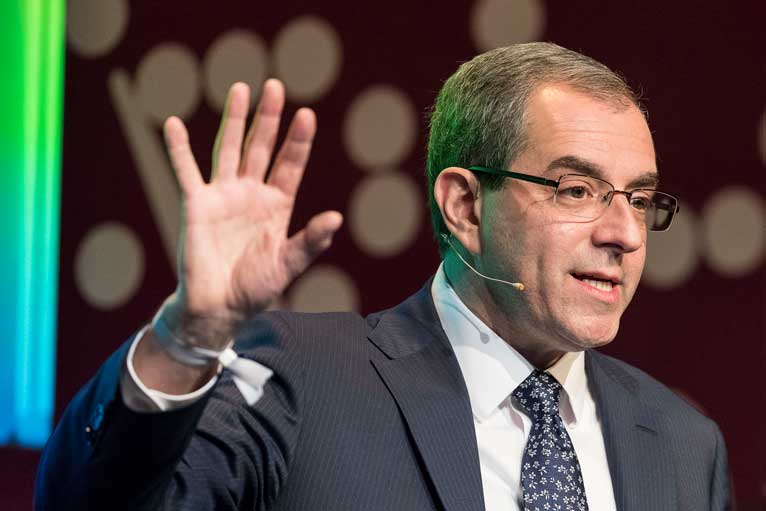
Photo gallery
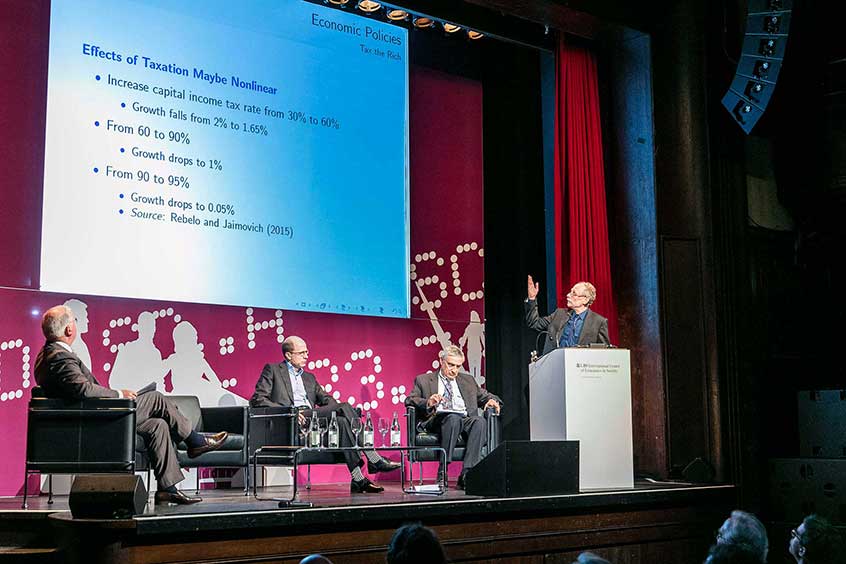
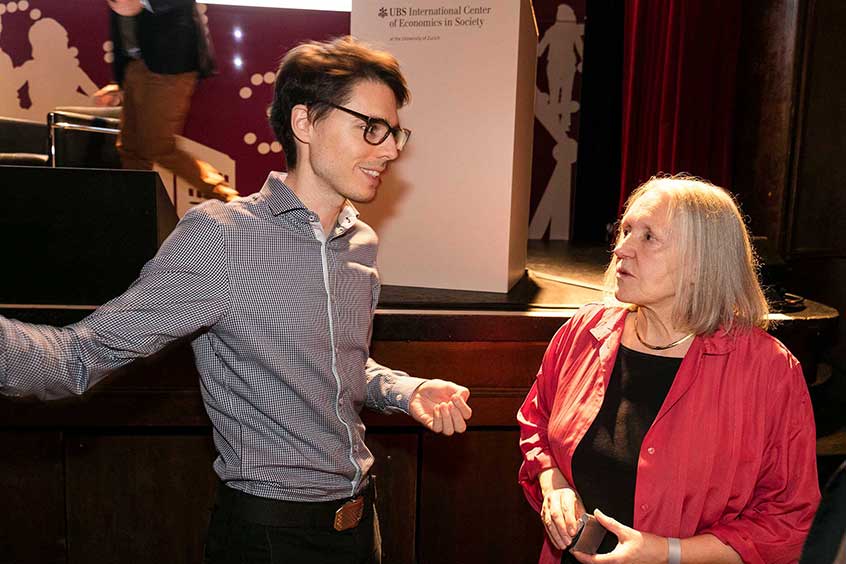
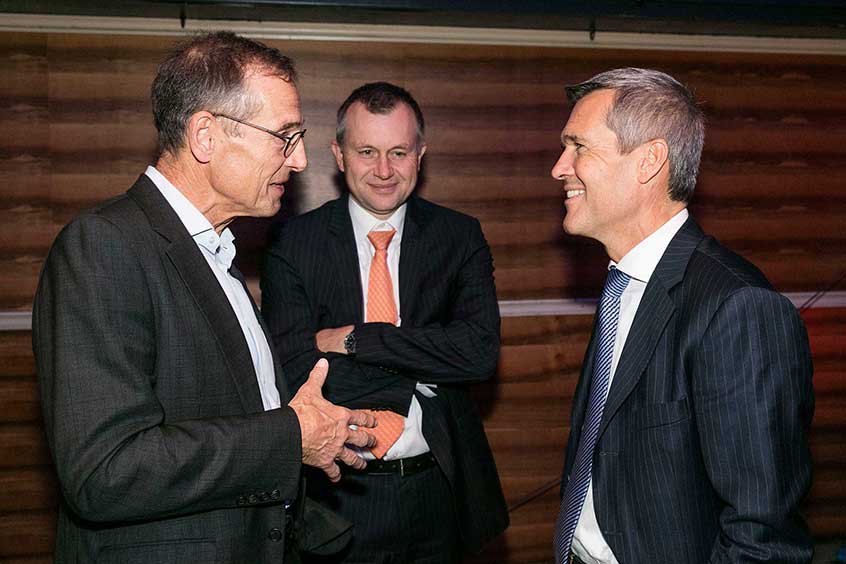
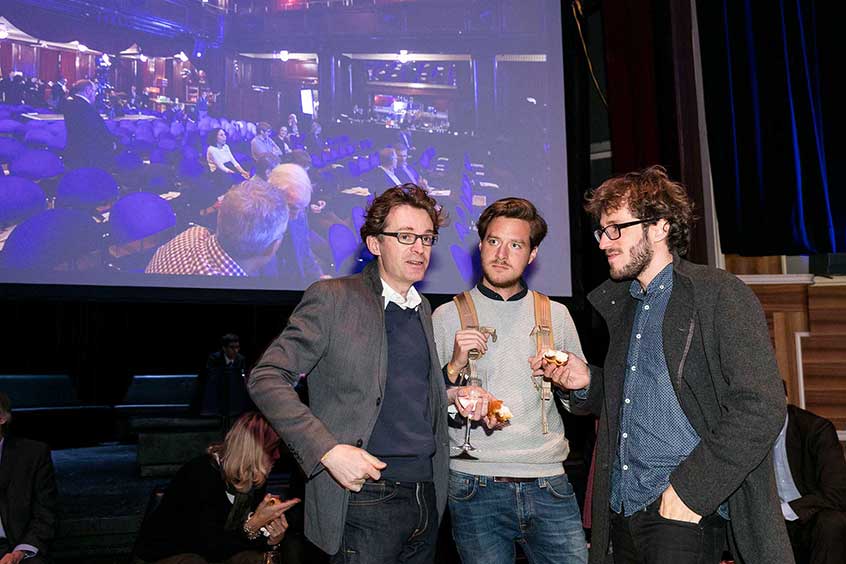
Program
Speakers
David Autor ist Ford Professor am MIT Department of Economics. Er untersucht die Auswirkungen des technologischen Wandels und der Globalisierung auf den Arbeitsmarkt auf die Polarisierung der Arbeitsplätze, das Einkommensniveau und die Ungleichheit sowie die Wahlergebnisse. Autor erhielt zahlreiche Auszeichnungen für seine Forschung, wie den National Science Foundation CAREER Award, ein Alfred P. Sloan Foundation-Stipendium, den Sherwin Rosen-Preis für herausragende Beiträge im Bereich der Arbeitsökonomie und das Andrew Carnegie-Stipendium. Bloomberg anerkannte David Autor als einen der 50 Menschen, die 2017 das globale Business definieren. The Economist nennt David Autor „die akademische Stimme des amerikanischen Arbeiters“.
"Nick Bostrom is Professor at Oxford University, where he is the Founding Director of the Future of Humanity Institute, a multidisciplinary research center which enables a set of exceptional mathematicians, philosophers, and scientists to think about global priorities and big questions for humanity.
Bostrom is the author of some 200 publications, including the academic book Superintelligence: Paths, Dangers, Strategies (OUP, 2014), which became a New York Times bestseller. His current research interests include existential risk, the simulation argument, anthropics (developing the first mathematically explicit theory of observation selection effects), impacts of future technology, especially machine intelligence, and implications of consequentialism for global strategy. Bostrom is recipient of a Eugene R. Gannon Award."
Dr. Alessandro Curioni is an IBM Fellow and the Vice President Europe and Director of the IBM Research – Zurich Lab. Dr. Curioni is an internationally renowned leader in the area of high-performance computing and computational science, where his innovative thinking and seminal contributions have helped solve some of the most complex scientific and technological problems in several industries including healthcare, consumer goods and electronics. In 2014, Dr. Curioni was promoted to the rank of IBM Fellow, the corporation’s highest technical recognition. He has received a number of prestigious prizes, the Gordon Bell Prize in 2013 and 2015, and the PRACE Award in 2012, to name just a few.
Ernst Fehr promovierte 1986 an der Universität Wien. Seine Arbeit hat gezeigt, wie soziale Motive die Zusammenarbeit, Verhandlungen und Koordination zwischen Akteuren beeinflussen und wie sich dies auf das Funktionieren von Anreizen, Märkten und Organisationen auswirkt. Seine Arbeit identifiziert wichtige Bedingungen, unter denen die Zusammenarbeit floriert und zusammenbricht. Die Arbeit an den psychologischen Grundlagen von Anreizen informiert uns über die Vorzüge und Grenzen finanzieller Anreize für die Vergütung von Mitarbeitern. In anderen Arbeiten hat er die Bedeutung der Unternehmenskultur für die Leistung von Unternehmen gezeigt. In neueren Arbeiten zeigt er, wie sich soziale Motive darauf auswirken, wie Menschen über Fragen im Zusammenhang mit der Umverteilung von Einkommen abstimmen und wie Unterschiede in der inneren Geduld der Menschen mit der Ungleichheit des Wohlstands zusammenhängen. Seine Arbeit hat innerhalb und außerhalb der Wissenschaft mit mehr als 100.000 Zitaten von Google Scholar große Resonanz gefunden, und seine Arbeit wurde mehrfach in internationalen und nationalen Zeitungen erwähnt.
Jeremy Greenwood is Professor of Economics at the University of Pennsylvania, a Research Associate at the National Bureau of Economic Research (NBER), and a Fellow of the Econometric Society. He is a macroeconomist whose research has focused on how technological progress has impacted, in a variety of ways, the economy. Specifically, he has analyzed how technological advance in the capital goods sector has been an engine of growth for the economy by making investment less expensive. This spurs capital accumulation and growth.
Professor Greenwood has studied how technological progress in financial markets allows investment to be directed toward the most profitable production opportunities in the economy, thereby increasing income and productivity. He has also studied how skilled-biased technology advance has promoted income inequality and led to de-unionization. Last, Professor Greenwood has estimated the worth of a personal computer for the average American.
"John Markoff covers science and technology for The New York Times. He began writing about technology in 1976 and joined The Times in 1988. He gained some notoriety several years ago when he stated that he thought blogs might be the CB radio of the 21st century. He still believes that.
In 2013, he was part of the team awarded the Pulitzer Prize for Explanatory Reporting \"for its penetrating look into business practices by Apple and other technology companies that illustrates the darker side of a changing global economy for workers and consumers.\"
He is the author of What the Dormouse Said: How the Sixties Counterculture Shaped the Personal Computer Industry and Machines of Loving Grace: The Quest for Common Ground Between Humans and Robots."
"John Martin is currently a consultant and Adjunct Research fellow at the UCD Geary Institute for Public Policy, Dublin. Formerly, he was OECD Director for Employment, Labour and Social Affairs from 2000 to early 2013. Martin joined OECD in 1977 and he held many posts in the Organisation including in the Economics Department. He was the founding editor of the OECD Employment Outlook and also edited the OECD Economic Outlook for several years. He was a part-time Professor at the Institute of Political Studies (Sciences Po) in Paris for many years. His current appointments include: Research Fellow of the Institute for the Study of Labour (IZA), Bonn; member of the French Prime Minister’s “Conseil d’orientation pour l’emploi”; member of the Irish Government’s Labour Market Council; member of the Council of the Economic and Social Research Institute, Dublin. He has published many articles on topics in labor economics and international trade in professional journals and has also written and edited several books in these fields."
Martin Meyer is a Swiss journalist, publicist, essayist and author. In 1974 he started his career at the Neue Zürcher Zeitung as editor for the Feuilleton, and became editor-in-chief of the Feuilleton in 1992. In addition to his work as a journalist Martin Meyer has written and published several books, among others about Ernst Jünger, Thomas Mann, Switzerland and Europe, Ende der Geschichte? and the debates about Krieg der Werte. Recently, he published a biography about Albert Camus. Meyer is corresponding member of the Deutsche Akademie für Sprache und Dichtung and received an honorary PhD of the University of St. Gallen.
Joel Mokyr is Robert H. Strotz Professor of Arts and Sciences and Professor of Economics and History at Northwestern University. His research focuses on the economic history of Europe, specializing in the period 1750–1914. His current research is concerned with the understanding of the economic and intellectual roots of technological progress and the growth of useful knowledge in European societies, as well as the impact that industrialization and economic progress have had on economic welfare. Prof. Mokyr is co-editor of a book series, the Princeton University Press Economic History of the Western World. He was the 2006 winner of the biennial Heineken Award for History offered by the Royal Dutch Academy of Sciences and the winner of the 2015 Balzan International Prize for economic history. He was elected a distinguished member of the American Economic Association. He is a member of the American Academy of Arts and Sciences, the British Academy, the Accademia dei Lincei and Royal Dutch Academy. Mokyr is the co-recipient of the 2025 Sveriges Riksbank Prize in Economic Sciences in Memory of Alfred Nobel for having identified the prerequisites for sustained growth through technological progress
Jeremy Rifkin is an American economist, writer, public speaker, political advisor and activist. He is the founder and President of the Foundation on Economic Trends and the bestselling author of over twenty books on the impact of scientific and technological changes on the economy, the workforce, society, and the environment. His books have been translated into more than thirty-five languages and are used in hundreds of universities, corporations and government agencies around the world. His most recent book is The Zero Marginal Cost Society.
Jeremy Rifkin has been an advisor to the European Union for the past decade. He currently advises the European Commission, the European Parliament, and has been advising several EU heads of state, including Chancellor Angela Merkel of Germany, former President of France Nicolas Sarkozy, and former Prime Minister of Spain José Luis Rodríguez Zapatero.
"Saskia Sassen is the Robert S. Lynd Professor of Sociology, and co-chairs The Committee on Global Thought, Columbia University.
Saskia Sassen’s research and writing focuses on globalization (including social, economic and political dimensions), immigration, global cities (including cities and terrorism), the new technologies, and changes within the liberal state that result from current transnational conditions. Her recent books are Territory, Authority, Rights: From Medieval to Global Assemblages (Princeton University Press 2008), A Sociology of Globalization (W. W. Norton 2007), and the 4th fully updated edition of Cities in a World Economy (Sage 2011). The Global City came out in a new fully updated edition in 2001. Her books are translated into twenty-one languages. She is currently working on When Territory Exits Existing Frameworks (Harvard University Press). She contributes regularly to www.OpenDemocracy.net and www.HuffingtonPost.com"
Roland Siegwart is Professor for Autonomous Mobile Robots at ETH Zurich, Founding Co-Director of the Wyss Translational Center Zurich and member of the Board of Directors of multiple companies, including Komax and NZZ. He studied mechanical sengineering at ETH, spent ten years as professor at EPF Lausanne (1996–2006), was Vice President Research and Corporate Relations of ETH Zurich (2010–2014) and held visiting positions at Stanford University and NASA Ames.
Siegwart’s research interests are in the design and navigation of wheeled, walking and flying robots autonomously operating in our complex and highly dynamical environments. He is also an active promotor of innovation and entrepreneurship for enhancing technology transfer and startup creation, and cofounder of multiple spin-off companies.
Fabrizio Zilibotti is the Tuntex Professor of International and Development Economics at Yale University. He was Professor of Macroeconomics and Political Economy at the Department of Economics at the University of Zurich and both Scientific Director and Deputy Director of the UBS International Center of Economics in Society. He is the President of the European Economic Association and co-editor at Econometrica. His research interests include economic growth and development, political economy, macro-economics, financial economics, and the Chinese economy.
David Autor ist Ford Professor am MIT Department of Economics. Er untersucht die Auswirkungen des technologischen Wandels und der Globalisierung auf den Arbeitsmarkt auf die Polarisierung der Arbeitsplätze, das Einkommensniveau und die Ungleichheit sowie die Wahlergebnisse. Autor erhielt zahlreiche Auszeichnungen für seine Forschung, wie den National Science Foundation CAREER Award, ein Alfred P. Sloan Foundation-Stipendium, den Sherwin Rosen-Preis für herausragende Beiträge im Bereich der Arbeitsökonomie und das Andrew Carnegie-Stipendium. Bloomberg anerkannte David Autor als einen der 50 Menschen, die 2017 das globale Business definieren. The Economist nennt David Autor „die akademische Stimme des amerikanischen Arbeiters“.
"Nick Bostrom is Professor at Oxford University, where he is the Founding Director of the Future of Humanity Institute, a multidisciplinary research center which enables a set of exceptional mathematicians, philosophers, and scientists to think about global priorities and big questions for humanity.
Bostrom is the author of some 200 publications, including the academic book Superintelligence: Paths, Dangers, Strategies (OUP, 2014), which became a New York Times bestseller. His current research interests include existential risk, the simulation argument, anthropics (developing the first mathematically explicit theory of observation selection effects), impacts of future technology, especially machine intelligence, and implications of consequentialism for global strategy. Bostrom is recipient of a Eugene R. Gannon Award."
Dr. Alessandro Curioni is an IBM Fellow and the Vice President Europe and Director of the IBM Research – Zurich Lab. Dr. Curioni is an internationally renowned leader in the area of high-performance computing and computational science, where his innovative thinking and seminal contributions have helped solve some of the most complex scientific and technological problems in several industries including healthcare, consumer goods and electronics. In 2014, Dr. Curioni was promoted to the rank of IBM Fellow, the corporation’s highest technical recognition. He has received a number of prestigious prizes, the Gordon Bell Prize in 2013 and 2015, and the PRACE Award in 2012, to name just a few.
Ernst Fehr promovierte 1986 an der Universität Wien. Seine Arbeit hat gezeigt, wie soziale Motive die Zusammenarbeit, Verhandlungen und Koordination zwischen Akteuren beeinflussen und wie sich dies auf das Funktionieren von Anreizen, Märkten und Organisationen auswirkt. Seine Arbeit identifiziert wichtige Bedingungen, unter denen die Zusammenarbeit floriert und zusammenbricht. Die Arbeit an den psychologischen Grundlagen von Anreizen informiert uns über die Vorzüge und Grenzen finanzieller Anreize für die Vergütung von Mitarbeitern. In anderen Arbeiten hat er die Bedeutung der Unternehmenskultur für die Leistung von Unternehmen gezeigt. In neueren Arbeiten zeigt er, wie sich soziale Motive darauf auswirken, wie Menschen über Fragen im Zusammenhang mit der Umverteilung von Einkommen abstimmen und wie Unterschiede in der inneren Geduld der Menschen mit der Ungleichheit des Wohlstands zusammenhängen. Seine Arbeit hat innerhalb und außerhalb der Wissenschaft mit mehr als 100.000 Zitaten von Google Scholar große Resonanz gefunden, und seine Arbeit wurde mehrfach in internationalen und nationalen Zeitungen erwähnt.